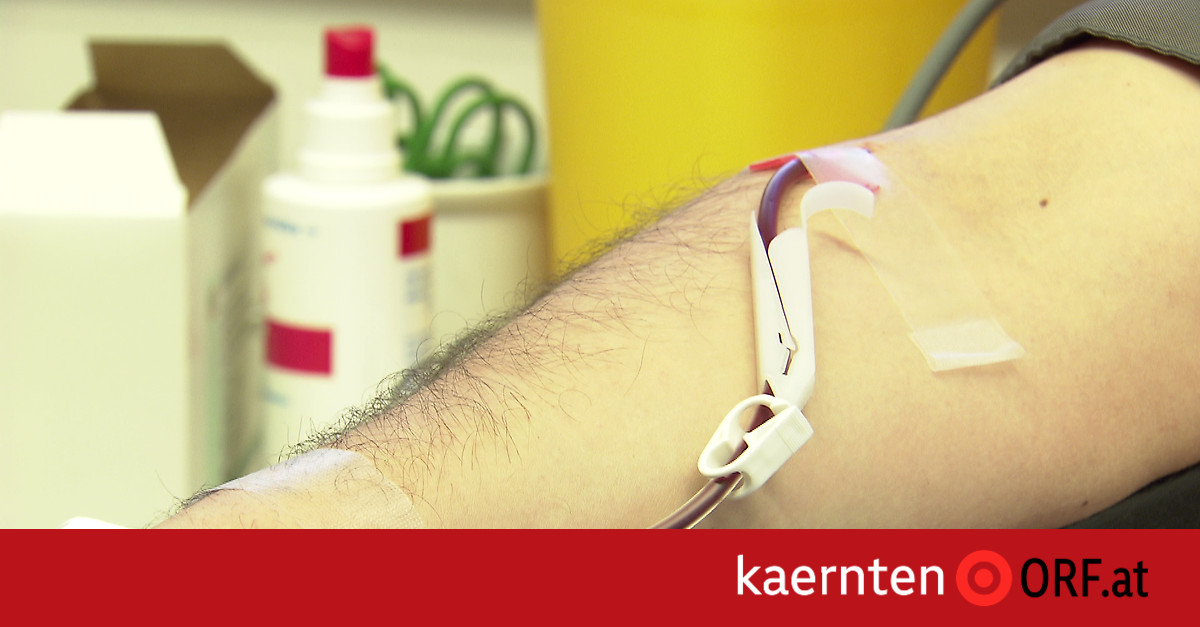In Carinthia, 70 to 80 people donate blood every day. These blood donations can be kept for a maximum of 42 days, so new ones are required on a regular basis. But especially in times of the coronavirus pandemic, there is always uncertainty about donating and receiving blood donations.
Blood group distribution
40 percent of people have blood group A, 40 percent blood group 0 and 20 percent AB or B. Of these, 80 percent are rhesus positive and 20 percent rhesus negative.
–
CoV is queried indirectly
Whether someone has been through a Covid 19 infection is not directly noted in the questionnaire that every blood donor has to fill out. But there are other questions that check this, says the head of the blood donation center of the Red Cross, Albert Sima: “The question is covered by the question of a flu, fever or hospitalization.”
Anyone who has been infected has to pause for a while before donating blood. Sima: “If a stay in an intensive care unit was necessary, then you have to take a break of four months after you have recovered. If a stay in intensive care was not necessary, then four weeks from recovery are sufficient. “
Anyone who has had contact with a person who tested positive for Covid-19 has to wait two weeks. And anyone who has been vaccinated against the coronavirus should take 48 hours off, provided that no vaccination reactions have occurred. Because then you should be free of fever for a week before donating blood.
Fear of “CoV-contaminated blood” is unfounded
Does someone who receives a blood bag have to fear that they will get blood contaminated with the coronavirus? So far not a single such case is known worldwide. And there is a simple reason for that. The Covid-19 pathogen conquers the blood very late, says Sima: “In mild cases – and we usually have to deal with mild cases with the blood donors who have recovered, the pathogen was only in the digestive tract or in the digestive tract Respiratory tract. It is only when people are subject to intensive care that the pathogen is also in the blood. “
In principle, only someone who feels healthy and fit should come to donate blood. Cough, runny nose, hoarseness or similar symptoms are always a reason for exclusion from donating blood.
–


